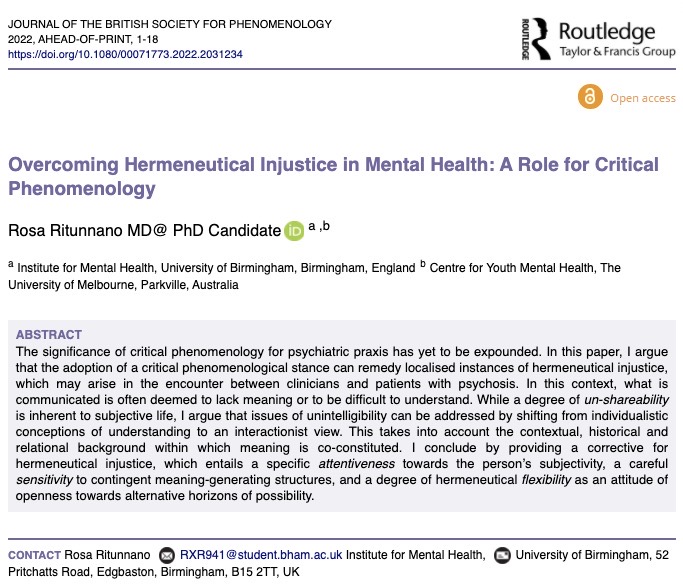
Philosophy & Mental Health: phenomenology, psychosis, delusion, meaning. Consultant Psychiatrist (EIP), Priestley PhD Scholar @IMH_UoB @unimelb. Own views.
How to get URL link on X (Twitter) App


https://twitter.com/d_a_swafford/status/1521834683943763968This is one of the main limitations we discuss, particularly with regards to the fact that very few studies are available where participants are actively delusional at the time of the interview. Having said so, I think our results still allow to highlight the dynamic
https://twitter.com/PhilCorlett1/status/1521825247028252672of certain populations (those in remission, with "insight" etc.) in qualitative studies.

 It's the first systematic review and qualitative evidence synthesis (QES) to examine the published English-language literature on the lived experience of delusions in help-seeking individuals with psychosis, irrespective of diagnosis and thematic content of the delusion. /2
It's the first systematic review and qualitative evidence synthesis (QES) to examine the published English-language literature on the lived experience of delusions in help-seeking individuals with psychosis, irrespective of diagnosis and thematic content of the delusion. /2

 Many thanks again to @PostEurope & @BritishPhen & all committee members 🙏 I really hope this work will bring additional attention to the importance of applied and critical phenomenology across often siloed research areas and help address stigma and injustice in mental health
Many thanks again to @PostEurope & @BritishPhen & all committee members 🙏 I really hope this work will bring additional attention to the importance of applied and critical phenomenology across often siloed research areas and help address stigma and injustice in mental health